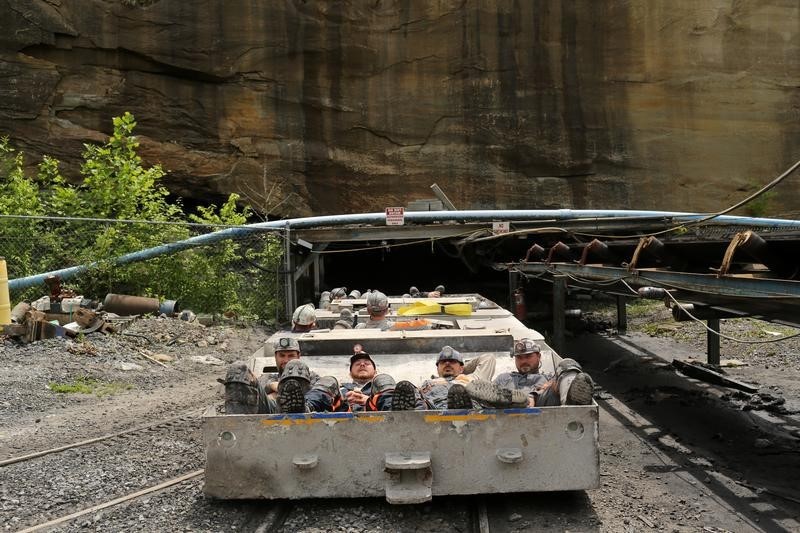* Tumbling Chinese imports pull Newcastle coal to record lows
* Cheaper producer currencies help reduce mining costs
* But cheap coal expected to create demand in emerging markets
By Henning Gloystein
SINGAPORE, Nov 12 (Reuters) - Australian coal prices have dropped to $50 a tonne for the first time as demand sags and costs fall due to costing cutting and falling producer currencies, but analysts say that the cheap price will keep coal competitive especially in emerging markets.
Coal cargoes for prompt deliveries from Australia's Newcastle terminal GCLNWCPFBMc1 settled at $50 per tonne on Wednesday, the lowest on record. This follows the lead of API2 2016 coal futures TRAPI2Yc1 , which fell below $50 a tonne for the first time since 2003 in September. urn:newsml:reuters.com:*:nL5N11S337
The unprecedented rout has seen the value of coal cargoes lose almost 40 percent since the beginning of the year and two-thirds since last peaking in 2011, when prices were pushed up by Japan's nuclear reactor meltdowns at Fukushima and because of mine flooding in Australia.
Compared with its all-time high of 2008, coal is now almost 75 percent cheaper.
At the heart of the slide is a slowdown in demand from China, which is expected to hit imports well into 2016. The world's biggest consumer of thermal coal has suffered a sharp slowdown in economic growth, while imports have also been hit by policies favouring local miners as well as targeting rampant pollution. urn:newsml:reuters.com:*:nL3N12515A urn:newsml:reuters.com:*:nEAP222039 urn:newsml:reuters.com:*:nL8N12J3DU
"It is really very difficult to go long without a structurally fundamental reason," one coal trader said.
A sharp fall in the value of currencies in producer nations like Australia, as well as cost saving efforts from miners, have also contributed to the falling prices.
The Australian dollar AUD= has lost more than 10 percent this year against the U.S. dollar, making it cheaper for Australian miners to produce coal and more profitable to sell it on the global market.
In the longer-term, however, cheap coal is widely expected to boost demand as emerging economies like the Philippines bank on cheap energy rather than cleaner fuels like natural gas to meet rising power demand.
"The precarious power supply situation in the Philippines will improve over the coming years as the robust power project pipeline is gradually commissioned. New coal capacity will dominate, owing to the fuel's low cost and widespread availability," BMI Research said.
More than 80 percent of all coal-fired power stations currently under construction are being built in the Asia/Pacific region, led by India, Southeast Asia and China, despite its slowdown and policies. urn:newsml:reuters.com:*:nL3N12U29E urn:newsml:reuters.com:*:nL3N126162
<^^^^^^^^^^^^^^^^^^^^^^^^^^^^^^^^^^^^^^^^^^^^^^^^^^^^^^^^^^^ CHART-Australian physical coal prices:
http://reut.rs/1PDpQns
^^^^^^^^^^^^^^^^^^^^^^^^^^^^^^^^^^^^^^^^^^^^^^^^^^^^^^^^^^^> (Editing by Ed Davies)
